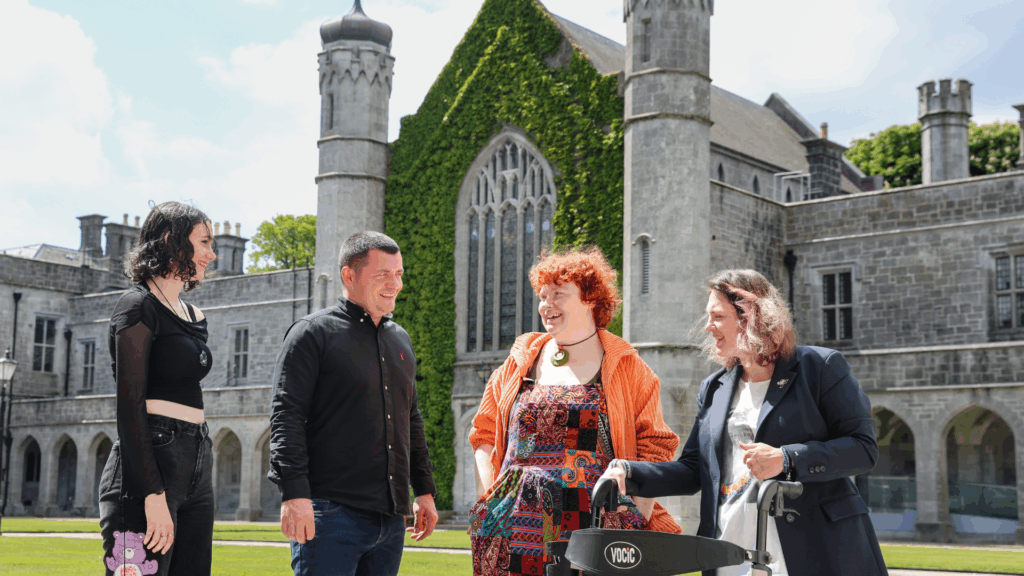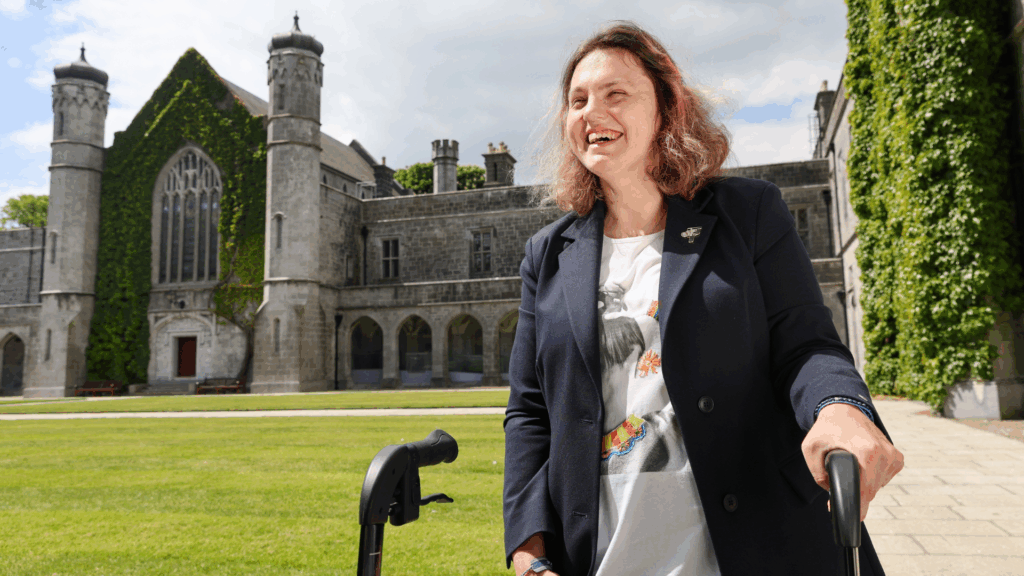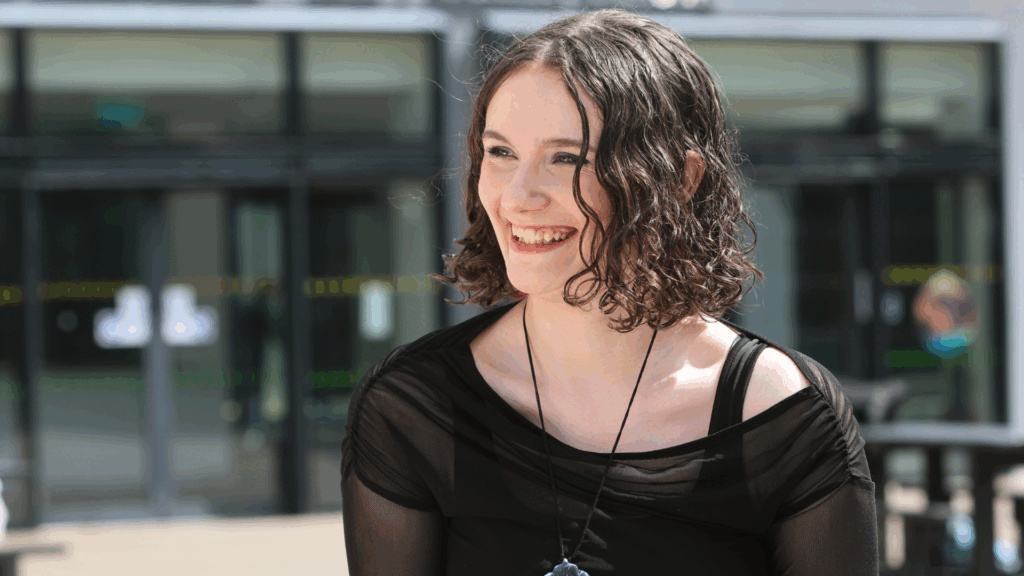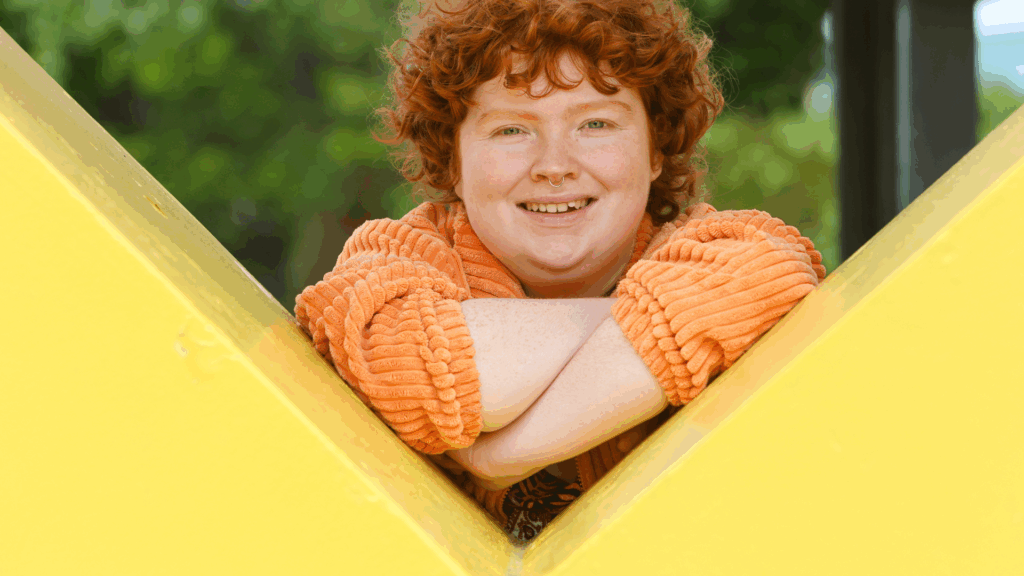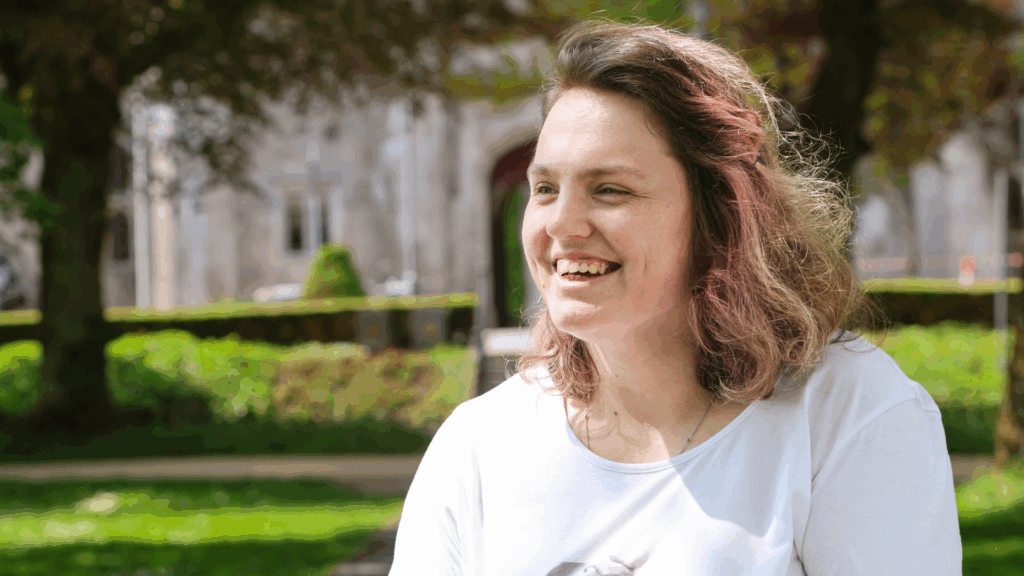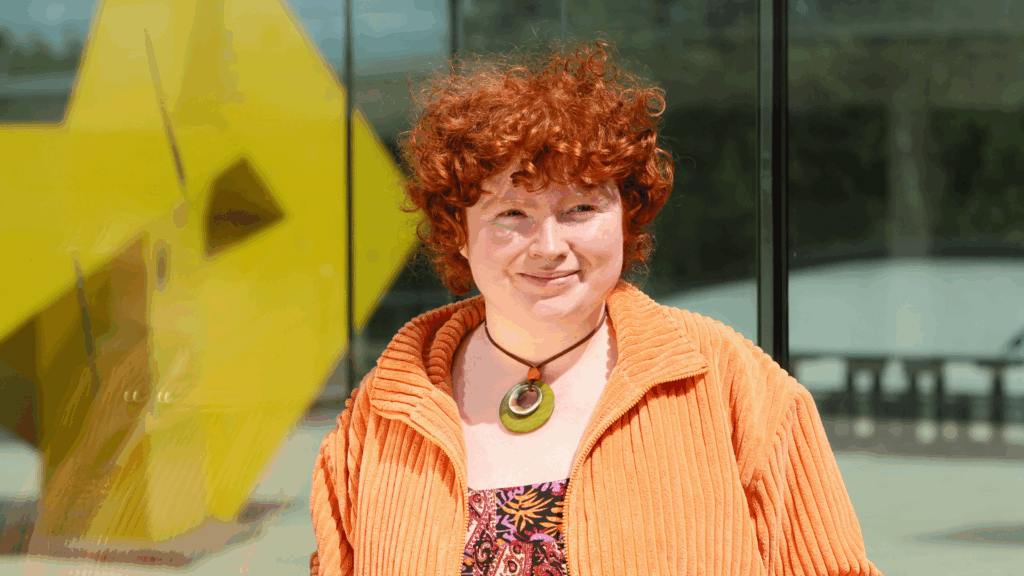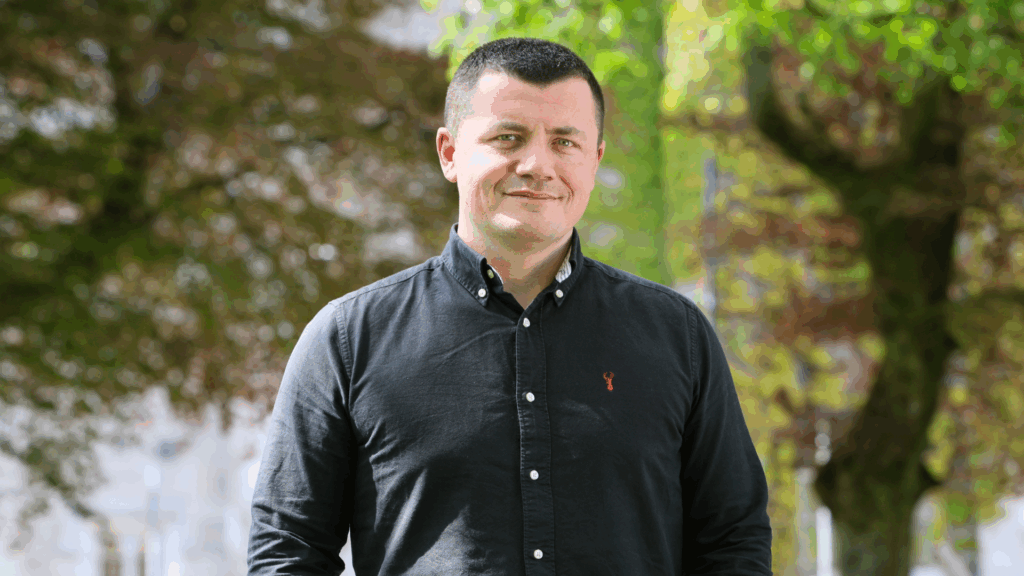Generation Access - University of Galway
Caitlin Sills, studying Psychological Studies and IT at University Of Galway
Caitlin accessed college through the HEAR scheme
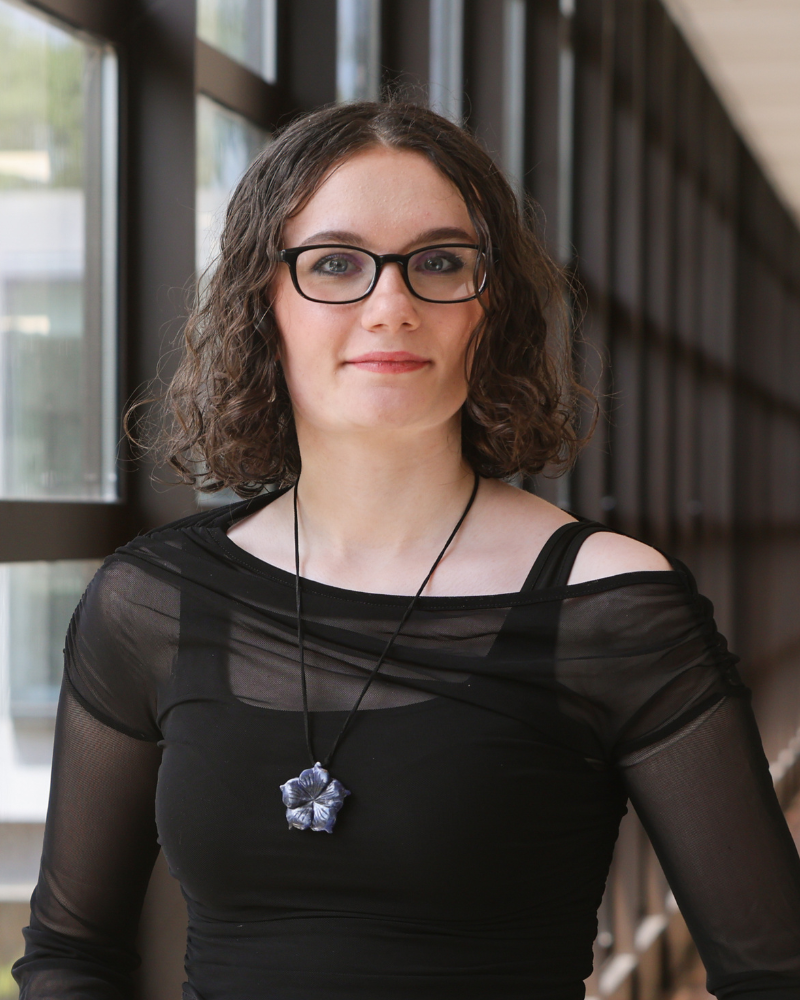
The main barrier I faced when accessing college was financial. I come from a single income household, my mam is on disability allowance so we don’t have a lot of money. I help her out where I can, which means that I spent a bit less time studying for the Leaving Cert. That was stressful, knowing that I am doing less study than my classmates. I knew that we wouldn’t be able to afford a laptop, which is a necessity for every college student.
What has university life been like for you so far?
It’s been great! I made friends very quickly, the first few weeks of first year are essential for that. I spent my entire first semester going to different society events every evening and I loved it. I will say that finding a new balance was difficult for me. Between maintaining my new friendships, staying consistent with studying, it was really difficult for me at first. I figured it out with some trial and error. I’ve learned a lot about myself since coming to university and I’ve really grown as a person.
Have you faced any specific challenges as an access student during your time in college?
My challenges are mostly financial, the Access centre here are so lovely and willing to help. I received a laptop under the laptop loan scheme and was informed of all of the resources available to me.
If you could give your 16 year old self-some advice on applying to higher education, what would you want them to know? Follow your heart and you can never check your CAO too much!
Mia Samovich, studying Psychology at University of Galway
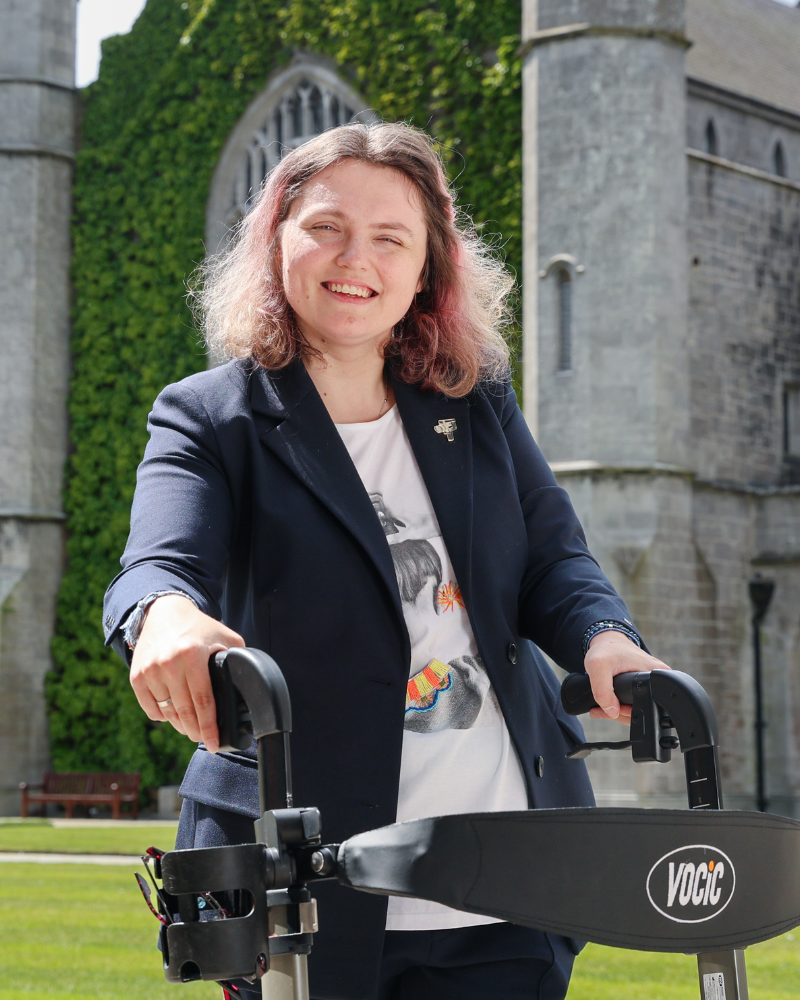
Academically, university life has been excellent. Lecture slides are always available online after each lecture, making it easy to review material. The lecturers are approachable and supportive. Throughout the years, I have participated in many extracurricular activities, which have enriched my university experience.
Have you faced any specific challenges as an access student during your time in college?
There used to be a lift outside the university library that frequently broke down, making it difficult to access the canteen on the ground floor. Now, the lift has been removed entirely, but I’ve found an alternative route. It takes longer, but it’s the only way for me to get there.
Where do you see yourself after completing your degree?
I would like to work in HSE as a Counsellor.
If you could give your 16 year old self-some advice on applying to higher education, what would you want them to know?
Don’t worry everything will work out. The Leaving Cert isn’t the ultimate decider of your future. Once you’re in university, you have options to change your course if needed and even if you don’t get in based on points, there are alternative ways to access university.
Cathal Shanagher, Post-Entry Support Projects Coordinator at University of Galway
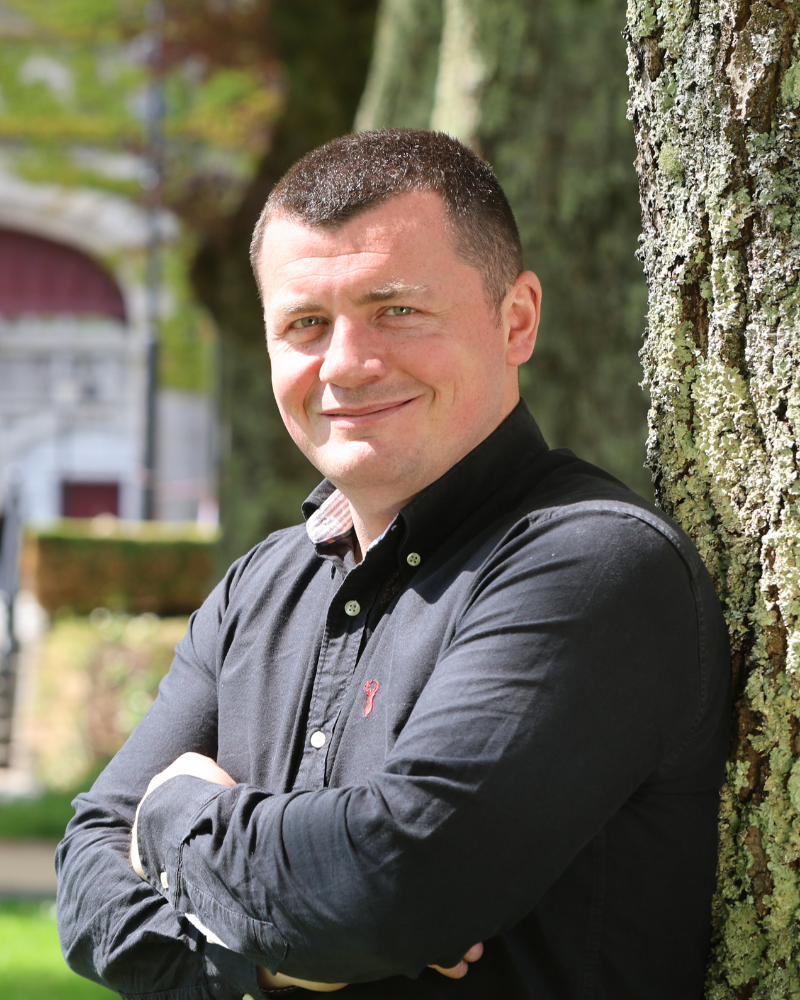
My role focuses on supporting students from traditionally underrepresented backgrounds in higher education. I work primarily with students who enter the University through the HEAR (Higher Education Access Route) scheme, those progressing from our Access Course into full-time undergraduate degrees, and recipients of the 1916 Bursary.
How has the college life and your job changed since starting the role?
Since joining the Access Centre, I have had the opportunity to contribute to several key areas of its operations. My first role was as Acting Traveller Education Officer, where I supported Traveller students within the University and engaged in community outreach. This involved promoting access to higher education by providing guidance on entry routes, as well as information on grants and bursaries. I also coordinated the TARGET Grinds programme, which offered free academic grinds to over 15 students from the Traveller and Roma communities.
For the past two years, I have been working in Post-Entry Support, assisting underrepresented students who have entered the University through various alternative entry routes. I have also contributed to Placement Support within the Disability Support Service, helping develop placement plans that outline reasonable accommodations or additional supports students may require while on placement. In addition, this year I have been involved in data analysis and reporting, collating data collected by the Access Centre and creating interactive Microsoft Power BI dashboards. These dashboards are designed to better visualise and inform stakeholders about the impact and scope of the work being carried out across our programmes.
How can universities, policymakers, and the public better support your students and these initiatives?
I would like to see financial supports more flexible and responsive to the real-life circumstances of students. Many students from underrepresented backgrounds – especially those just above eligibility thresholds for supports like SUSI or the 1916 Bursary – struggle silently with financial pressure that isn’t always visible on paper. These students often fall through the cracks, despite facing the same, if not greater, barriers to success. We also need greater recognition of the responsibilities that many of our students carry. The majority of the groups listed in the National Access Plan often have to balance both academic commitments alongside full-time family and personal responsibilities. These realities for students require us to think beyond a ‘one-size-fits-all’ model of student life.
Molly Hickey, studying Human Rights at University of Galway
Molly accessed college through the DARE scheme
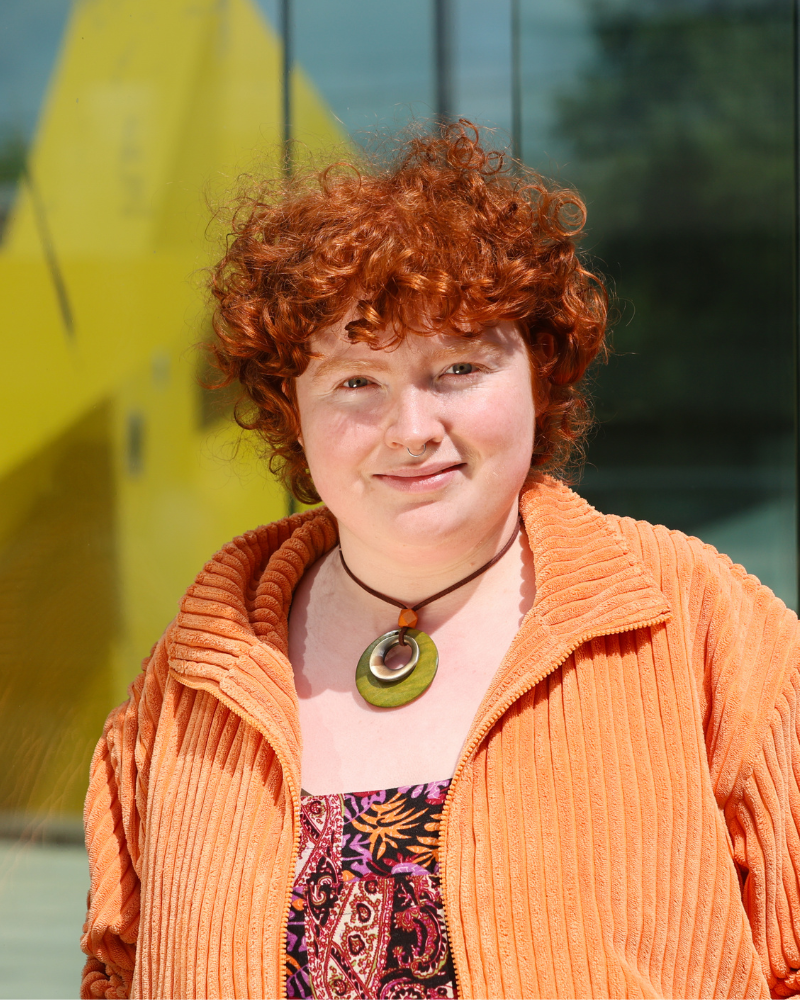
I think one of my biggest barriers when applying to university was myself. I felt there was no way I was getting into what I wanted to do, which was human rights.
I also remember not wanting to apply through DARE because a student made a comment to me being like “that’s the easy way out” and that really stuck with me and made me start to think that I am just lazy and taking the easy way out. It took me a while but I did overcome these challenges by working on myself and realising that I have a voice, that I can help a lot of people and that I deserve to go to university no matter what anyone says.
When my mindset changed I did end up applying through DARE because I reminded myself that I have ADHD and I have dyslexia which can make things more challenging for me so I deserve the extra help and that applying through DARE wasn’t an easy way out for me. It was giving me an equal playing ground with everyone else who was applying to university.
What has university life been like for you so far?
University has given me both the best experience of my life but also some of the most challenging things I’ve ever faced. On the academic side I still struggle with essay writing and concentration because of my dyslexia and ADHD. I have FND (Functional Neurological Disorder) which I was diagnosed with since being in university which can lead me to not being able to attend lectures always. However there has been so much support put in place through my disability advisor which has made my life a lot easier.
On the social side of things, university has been amazing. I know if I hadn’t gone to university I definitely wouldn’t be the person I am today because I think I would be less social and less confident in speaking out about things I’m passionate about.
Patrick Kelly, studying Mechanical Engineering at University of Galway
Patrick accessed college through the HEAR scheme
Can you describe your experience of accessing college?
My father passed in October of my leaving cert year. This produced a significant challenge emotionally. This massively effected my studying. It also meant any financing of college, say on campus accommodation, books, transport etc would have to be funded through part time work. And I knew this from day 1.
If you could give your 16 year old self-some advice on applying to higher education, what would you want them to know?
I believe I have done my best at every hurdle so far, the only thing I’d tell 16 year old me would be to spend more time with dad, and probably invest in some company I know now would be big, at least I wouldn’t have to worry about money! When I reflect on the monumental challenges I’ve faced, I can only think I don’t know how I overcame them, there is no magic word of wisdom I could give myself, it was pure perseverance.
Where do you see yourself after completing your degree?
I want to go Into industry for a while, but I’d love to be a lecturer. One of my biggest skills is public speaking and presenting, and I feel with the exception of Dr Giuseppe Zirlo engineering has massively lacked that. I want to contribute using my skills to the next batch of engineers, and make sure that any students like me get treated fairly and have every opportunity to succeed.
Sioda Monaghan, studying Psychology, Sociology and Politics, Global Media at University Of Galway
Can you describe your experience of accessing college?
I found the leaving cert very stressful as most students do. It had a serious impact on my mental health. Just before starting college, my Dad died, which meant a very rocky start. However, I had access to the Access centre due to my care experience and was linked in with the Educational Support Worker for Care Experienced, Betty Atwood, and to say she helped is an understatement. She helped me get linked in with other college supports and met me weekly to check-in on me and how I was finding college.
I continue to see Betty roughly every week, and she continues to help me with meeting college deadlines, as well as just encouraging me to do my best and giving me pep talks when needed. I have had a very hard two years and I truly believe that without Betty I wouldn’t be pursuing my degree still. I think everyone deserves to have a Betty in their life, and I think the role of Educational Support Worker for Care Experienced should be integrated into every third level institution.
What has university life been like for you so far?
I’ve found university quite challenging at times. However, the Disability Service in the college has helped immensely by allowing accommodations for me and giving me access to necessary assistive technology. Almost all staff members and lecturers have been very understanding when I explain personal circumstances, which is vital to me. There are lots of supports on campus – the chaplaincy, counselling, student union, the access centre, the disability support service, the accommodation advisory service, the library, the student advisors and coaches, I could go on. Providing me with technology to complete assignments, allowing accommodations around my abilities, giving me access to financial aid and supports, access to free counselling, even going so far as to help me find a place to live. The college staff have been so much more than helpful, from the lecturers to the support workers, to the Sult (campus bar) and Smokeys (one of the many campus cafés) staff!

